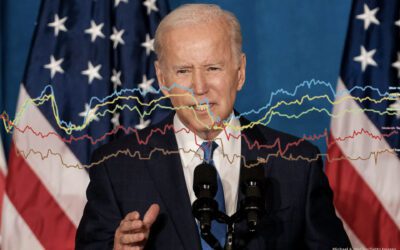Last week, the American people were determined to vote for change – change that would crash the dominance of special interests over government and bring bold economic policies so the economy would work for everyone, not just the wealthy and well-connected. That narrative underlines why Donald Trump received an audience and why he is now the president-elect.[1]
It does not explain, however, why Hillary Clinton failed to win the presidency on November 8th. The Comey letter re-opened the vote decision for some people and critically impacted the race, but the Clinton campaign moved from running on change to running on continuity. She fully articulated an economic change message throughout the three debates and offered her plans for change, but after the Comey F.B.I. letter, the campaign no longer spoke of change, the economy and her bold plans for the future. In the final weeks, the Clinton campaign conceded the economy and change to Trump, while seeking to make him personally unacceptable. Frustratingly, it closed the campaign appealing for unity, promising to promote opportunity and to “build on the progress” of the Obama presidency. That is why key groups of voters moved to Trump in the Rust Belt and why the turnout of many base groups was so disappointing in the end.
Understanding what really happened allows one to see how ready voters were to vote for a “rewrite the rules” economic message, how white working class women stuck with Clinton until she abandoned that message, and how much the new Rising American Electorate – from millennials to unmarried women to minority voters – required an economic change offer, not identity politics, to stay fulling engaged.
And thus it should not be surprising that the electorate that put Donald Trump in the White House today wants bold, not incremental change. This is a country that still wants deep and long-term investments in America’s infrastructure and is ready to invest in our under-served communities. It wants to limit corporate power that reduces competition and innovation and reform trade, starting with a dramatic ability to prosecute and enforce trade laws.
[1] This survey took place Monday, November 7 – Wednesday November 9, 2016 among 1,300 voters or (on Monday only) those with a high stated intention of voting in 2016. In addition to a 900 voter base sample, oversamples of 200 Rising American Electorate voters (unmarried women, minorities and millennials) and 200 battleground state voters (AZ, FL, OH, IA, NC, NV, NH, PA, VA, WI) were included. Margin of error for the full sample is +/-3.27 percentage points at the 95 percent confidence level. Of the 1,300 respondents, 65 percent were interviewed via cell phone in order to accurately sample the American electorate.
The Roosevelt Institute is a non-partisan organization. In 2015, the Institute released a report with a bold economic argument and agenda titled, Rewriting the Rules of the American Economy. Rewriting the Rules was promoted widely, including to all presidential candidates of both major parties. The Institute has also released a stream of opinion research — to that same audience and beyond — to demonstrate popular support for this kind of agenda. This final post-election survey was designed to test how the message was utilized or ultimately performed.




